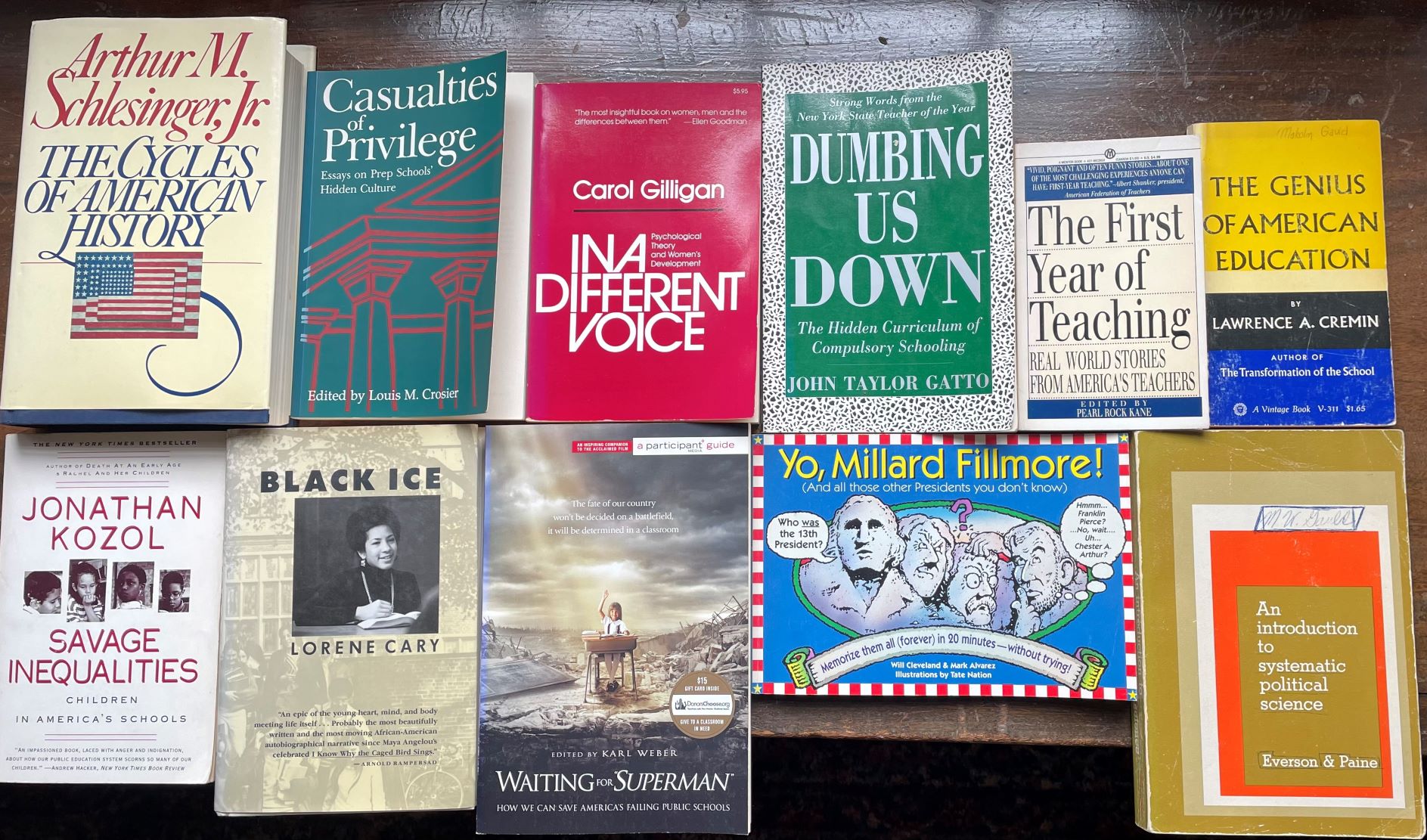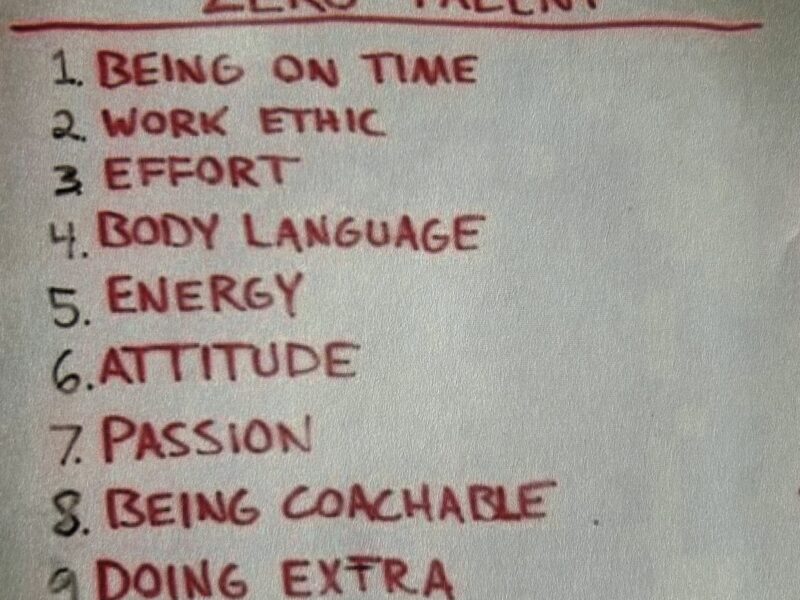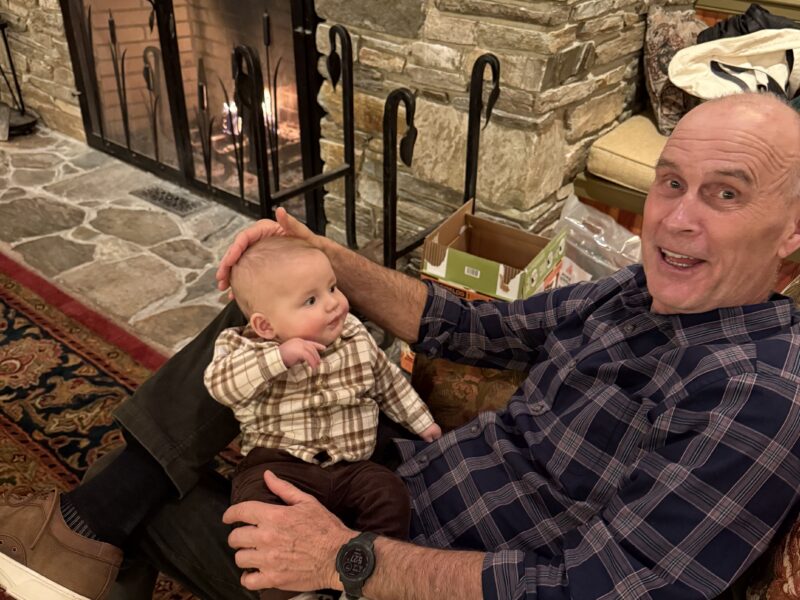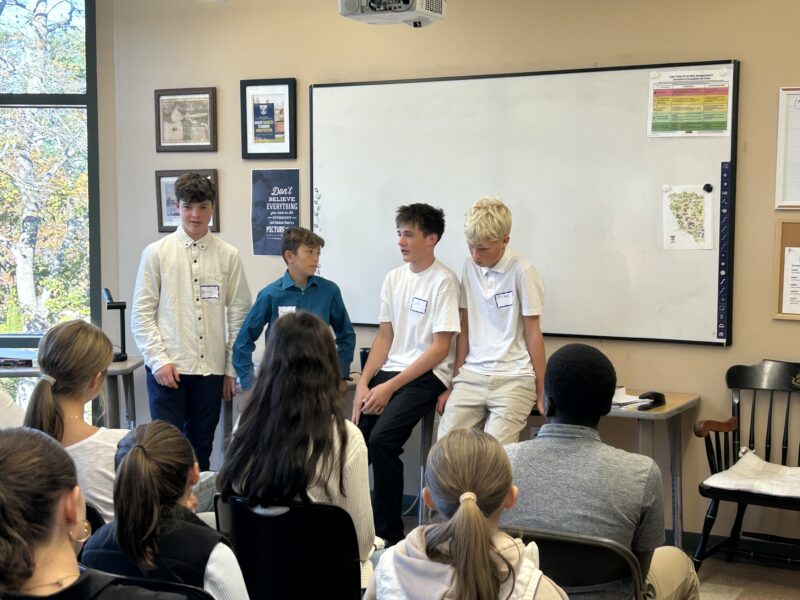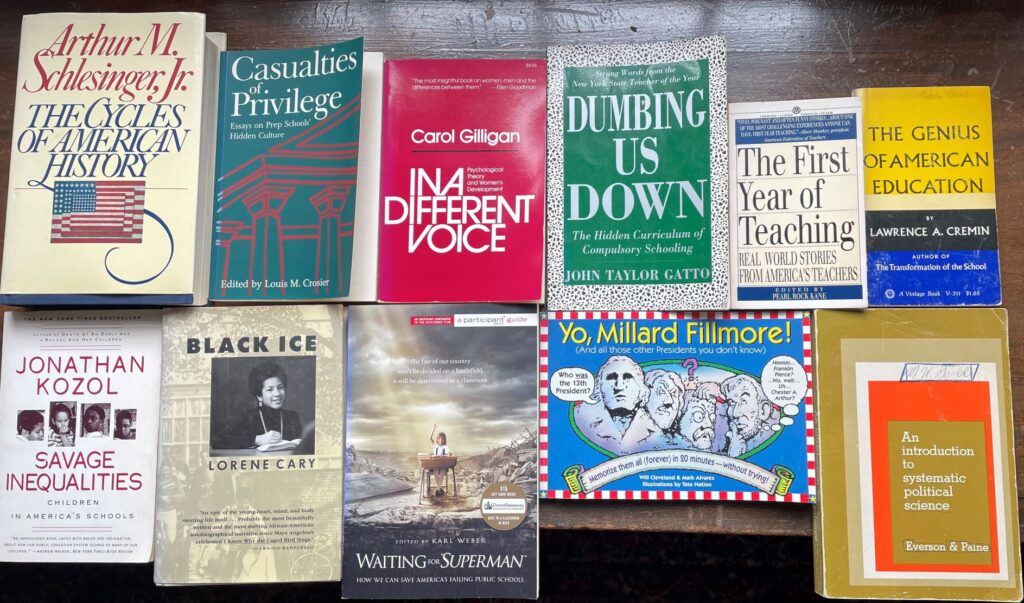
The theme of our Fall ’25 Family Weekend was Curiosity. Invited to present the Thursday night kick-off welcome to parents, I began with the story of how Laura and I identified our purpose behind writing the Biggest Job book…
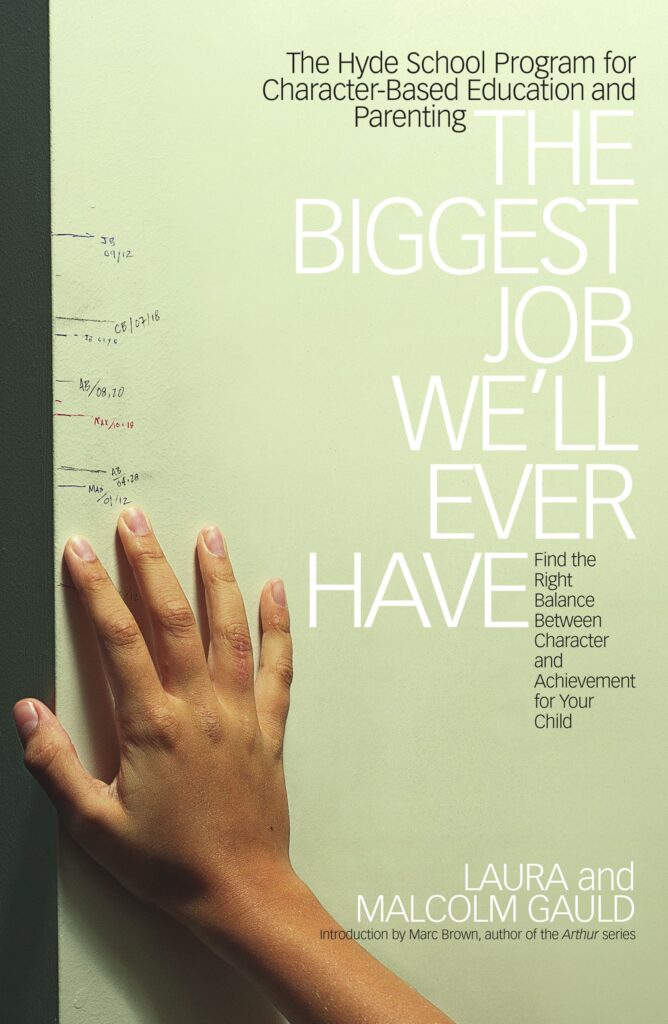
Knowing next to nothing about the publishing world, we were fortunate to be introduced to a prominent publishing agent who invited us to meet at her Manhattan office. She began by disarming us with an all-too-obvious question: “Why do you want to write a book about parenting?”
After a few fumbled responses, she cut us off and said, “The world’s largest Barnes and Nobles is right across the street. (We were on lower Broadway.) So, let’s put this meeting on pause… You enter that store… go to the parenting section… spend as much time as you need… then come back here and tell me how your book is going to be unique and hopefully better than the hundreds of parenting books one can purchase in that Barnes & Nobles.”
While leafing through the books there, our initial emotion was one of intimidation as we realized that there were some excellent options available there! At the same time, we also began to realize that most of those books were focused on behavior management: How can I get my kid to act the way I would like them to act? Before long, it dawned on us that our motivation, our vision, our premise was different: If you want to be a better parent, first focus on being a better person.
So, we went back across the street, resumed the meeting, and shared this premise with the agent. She replied, “We can work with that.” When we left her office, she was our new agent.
From there, Thursday night’s talk moved on to factors that can inhibit curiosity…
1. Availability Heuristic
2. Reassigning Burden to the Teacher
3. Confusing “brightness” with curiosity
… as well as those that catalyze it:
1. IPSES Inventory
2. True North – My Personal Code
3. In Praise of Great Teachers
4. Capacity for Surprise
Some explanation (including some links offering greater detail) follows:
Inhibitors:
1. Availability Heuristic – “In its simplest terms, the availability heuristic tells us that people judge the likelihood of something happening not by facts or statistics or rational thought, but by the ease with which we can recall an example of its happening.” – from Small Animals – Parenthood in the Age of Fear (2018, Flatiron Books)
To explain how the availability heuristic can inhibit curiosity, I used an example from my surfing life. I have come to expect that any conversation I have with someone about surfing will predictably evolve to a question about sharks. Just for grins, I did some analysis focused on New Jersey. During the century between 1925 and 2025, the entire Jersey Shore recorded a grand total of one (1) shark attack. Meanwhile, the state of New Jersey averages 200,000 car accidents… annually. The Point: Fear of sharks will keep people out of the water while they think nothing of hopping in the car and heading out for an errand or joy ride. (My research also revealed that U.S. drivers average 1 accident every 18 years.)
One last point on the availability heuristic: I became interested in it after countless conversations concerning my recent bladder cancer surgery and ongoing recovery where people — with the very best of intentions — will compare me to their Aunt Betty or Uncle Bob. They will often assume that my prospects will mirror Betty and Bob’s — Note: Before I had my own cancer, I did the same thing. — as opposed to an opinion based more on medical conclusions drawn from research. Given that 1 out of every 2.5 Americans — or 40% — will receive a diagnosis of some type of cancer during their lifetime, wouldn’t that call for a higher level of national curiosity relative to its causes, cures, and recovery rates?
2. Reassigning the burden to the teacher – Do we perceive our teachers as wisdom purveyors OR disciplinary backstops?
As my students enter their junior and seniors years, I like to ask them, “How good are you at learning from a boring teacher. If you’re looking for a recomendation to a selective rigorous college, I’m assuming you’ve moved beyond the point where your attention span is not dependent on how interesting the teacher might happen to be.”
3. Confusing “brightness” with curiosity – What do we as parents truly value?… really?
From my book Culture by Design – The Discovery Process as a New Way for Schools (Rowman Littlefield, 2023):
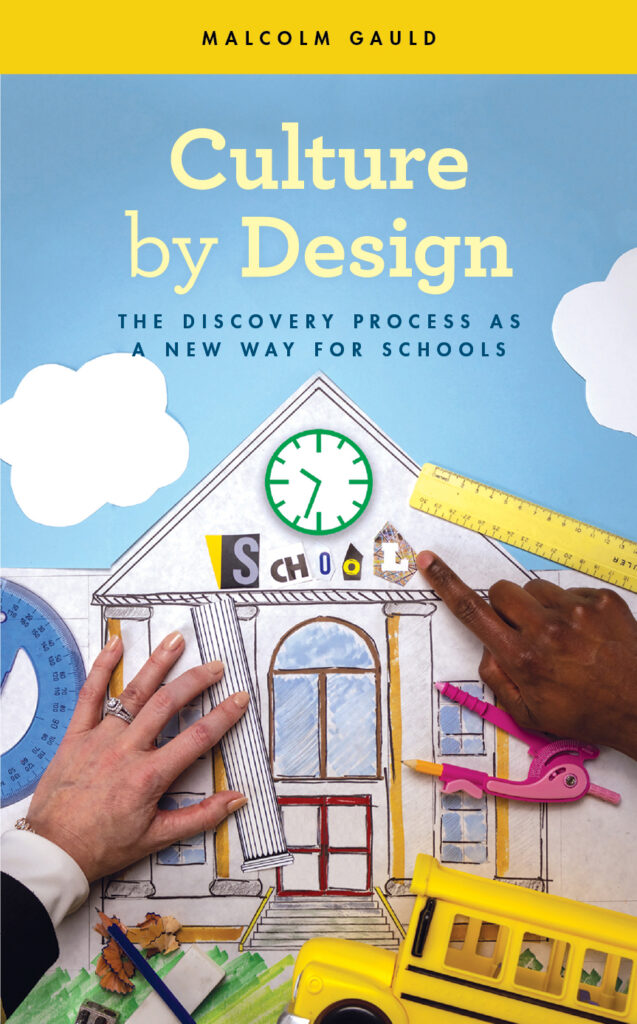
Adult assessments of middle and high school student scholastic performance nearly always begin with the brightness factor. Once that is established, the consideration of effort commences. It has always reminded me of the tether ball station on a playground. The stationary pole represents the level of brightness while the ball spinning around on the rope represents effort. New programs, initiatives, and curricular emphases may come and go, but our national preoccupation with brightness, intelligence, and general academic ability is deeply engrained in our consciousness as the unalterable constant.
This national preoccupation, as scholars like Stanford’s Carole Dweck have shown, thwarts the development of authentic curiosity. Now, turning to Catalysts…
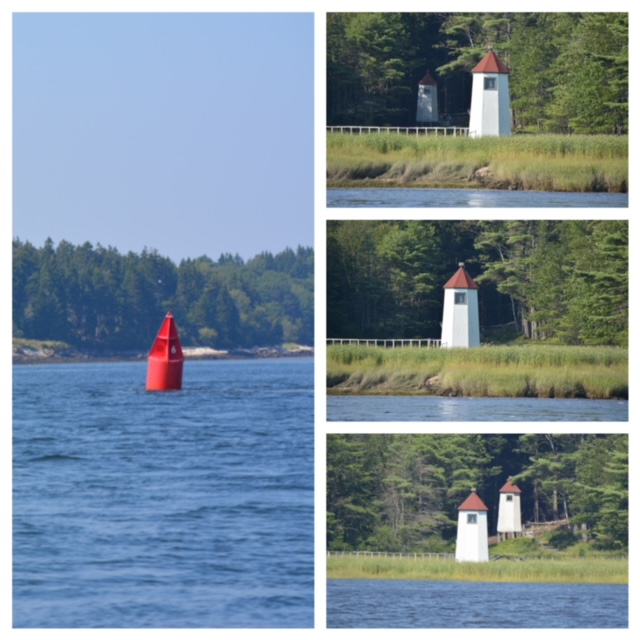
When the lighthouse in front blocks the one in back, you’re in the middle of the channel. Wonder how many boats were wrecked on the rocks before this simple and timeless solution went up in 1898?
Catalysts
1. IPSES Inventory – A personal inventory of your own Intellectual, Physical, Social, Emotional, and Spiritual dimensions might well open the doors to a more fulfilling sense of curiosity. Here’s a link to my own recent experience in doing so.
https://thoughtsoncharacter.com/ipses-out-for-now/
2. True North – My Personal Code. Since I was 17, Hyde’s 5 Words — Courage, Integrity, Leadership, Curiosity, and Concern — have been my True North. Even at 71, I still walk my mind through them when I feel as though my life is stuck in a rut. For more on this, click this link:
https://thoughtsoncharacter.com/my-personal-code/
3. In Praise of Great Teachers – Top 5 Exercise: Years ago, as a faculty development exercise, we were asked to make a Top 5 list where we indentified the five teachers/mentors who had the biggest impact on our lives. My list included a middle school teacher/coach, a high school teacher/coach, a college professor, a college coach, and the CEO of a Boston sales organization where I worked while hitting my 30s. By analyzing the teachers who impacted you, you might learn more about how you actually learn, which, in turn, can enlighten you as to the state of your own sense of curiosity.
https://thoughtsoncharacter.com/in-praise-of-great-teachers/
4. Capacity for Surprise – Never lose it. – The older we get, the more we must take special efforts to ward off becoming jaded, thereby keeping our objectivity and curiosity channels open to the world around us.
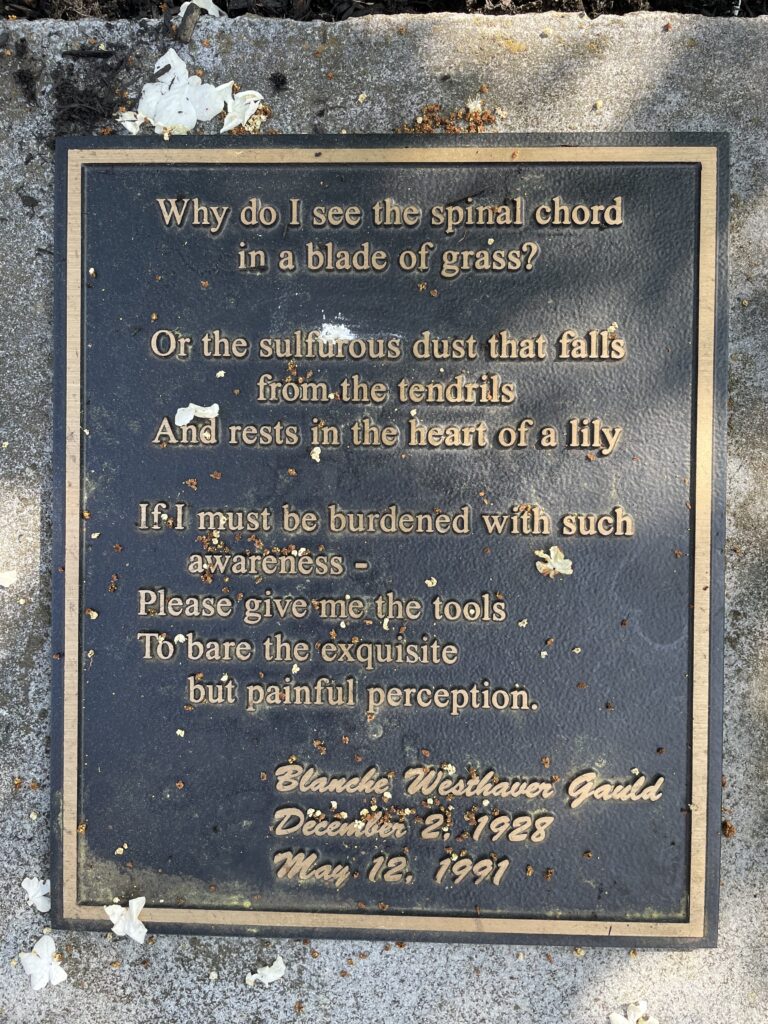
https://thoughtsoncharacter.com/curiosity-reconsidered/
Bonus: Although it might not relate specifically to curiosity, I have always loved this Jackie Kennedy quote. It also helps me stay… curious.
https://thoughtsoncharacter.com/if-you-bungle-raising-your-chidren/
Onward,
Malcolm Gauld
